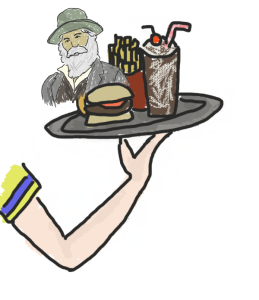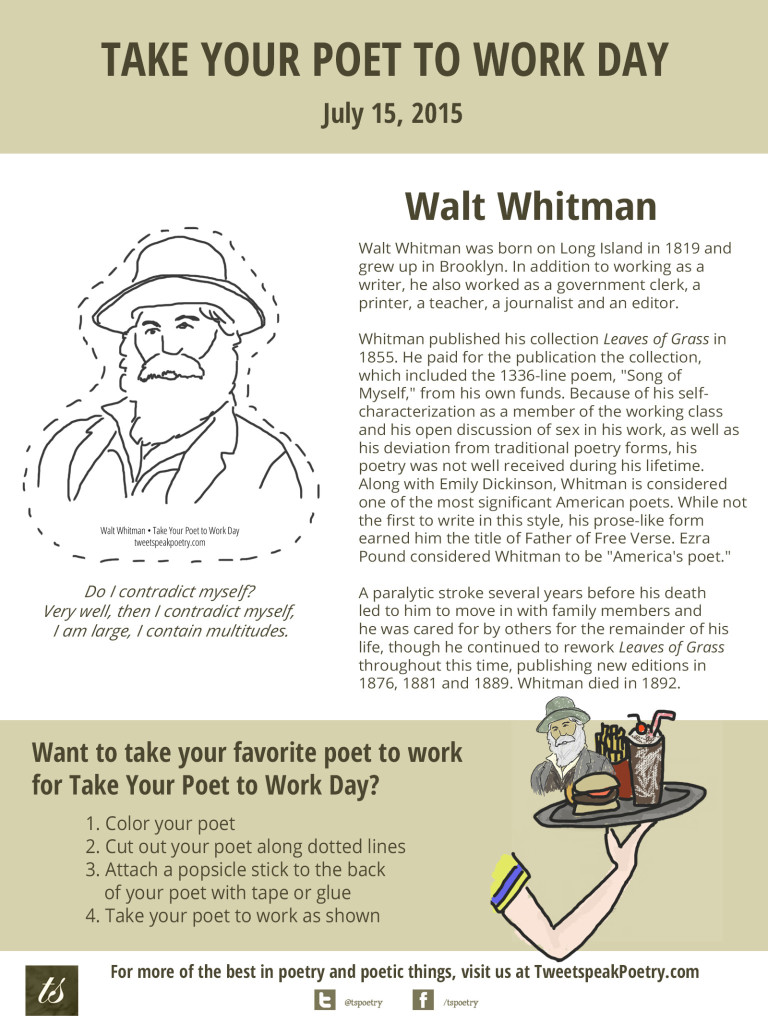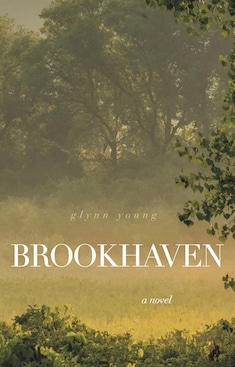It’s one thing to start every day with a poem. But another altogether to start your day with a poet. One of our favorite days of the year is fast approaching, when we encourage people around the world to take their favorite poet to work for the day.
Take Your Poet to Work Day is coming July 15, 2015
 To help you play and celebrate with us, we’re releasing poets each week in a compact, convenient format you can tuck in your pocket, tool belt, or lunchbox. We started our celebration two years ago with Sara Teasdale, Pablo Neruda, T. S. Eliot, Rumi, Edgar Allan Poe, and the reclusive Emily Dickinson (for folks who work at home). We even released a full collection, The Haiku Masters: Matsuo Basho, Yosa Buson, and Kobayashi Issa. And last year, we added Langston Hughes, Adrienne Rich, John Keats, William Butler Yeats, Christina Rossetti and the beloved 20th-century American poet, Sylvia Plath.
To help you play and celebrate with us, we’re releasing poets each week in a compact, convenient format you can tuck in your pocket, tool belt, or lunchbox. We started our celebration two years ago with Sara Teasdale, Pablo Neruda, T. S. Eliot, Rumi, Edgar Allan Poe, and the reclusive Emily Dickinson (for folks who work at home). We even released a full collection, The Haiku Masters: Matsuo Basho, Yosa Buson, and Kobayashi Issa. And last year, we added Langston Hughes, Adrienne Rich, John Keats, William Butler Yeats, Christina Rossetti and the beloved 20th-century American poet, Sylvia Plath.
Because you can never have too many poets in your lunch box (or your desk drawer), we have a new collection of poets to release this year, including the Bard of Avon William Shakespeare, beloved poet Maya Angelou, iconic American poet Robert Frost, Russian poet Anna Akhmatova, and Polish poet Wisława Szymborska. Today we round out the 2015 Take Your Poet to Work Day poet collection with America’s poet, Walt Whitman.
Take Your Poet to Work: Walt Whitman
Get your own downloadable version of Take Your Poet to Work Day Walt Whitman that you can print, color and cut out for the big day.
Walt Whitman was born on Long Island in 1819 and grew up in Brooklyn. In addition to working as a writer, he also worked as a government clerk, a printer, a teacher, a journalist and an editor.
Whitman published his collection Leaves of Grass in 1855. He paid for the publication the collection, which included the 1336-line poem, “Song of Myself, ” from his own funds. Because of his self-characterization as a member of the working class and his open discussion of sex in his work, as well as his deviation from traditional poetry forms, his poetry was not well received during his lifetime. Along with Emily Dickinson, Whitman is considered one of the most significant American poets. While not the first to write in this style, his prose-like form earned him the title of Father of Free Verse. Ezra Pound considered Whitman to be “America’s poet.”
A paralytic stroke several years before his death led to him to move in with family members and he was cared for by others for the remainder of his life, though he continued to rework Leaves of Grass throughout this time, publishing new editions in 1876, 1881 and 1889. Whitman died in 1892.
O Me! O Life!
Oh me! Oh life! of the questions of these recurring,
Of the endless trains of the faithless, of cities fill’d with the foolish,
Of myself forever reproaching myself, (for who more foolish than I, and who more faithless?)
Of eyes that vainly crave the light, of the objects mean, of the struggle ever renew’d,
Of the poor results of all, of the plodding and sordid crowds I see around me,
Of the empty and useless years of the rest, with the rest me intertwined,
The question, O me! so sad, recurring—What good amid these, O me, O life?
That you are here—that life exists and identity,
That the powerful play goes on, and you may contribute a verse.
—Walt Whitman
Post and illustrations by LW Lindquist.
________________________
Take a poet to work every weekday morning with a subscription to Every Day Poems, the most beautiful and convenient way to read a poem a day
BUY A YEAR OF EVERY DAY POEMS, JUST $5.99
- Earth Song Poem Featured on The Slowdown!—Birds in Home Depot - February 7, 2023
- The Rapping in the Attic—Happy Holidays Fun Video! - December 21, 2022
- Video: Earth Song: A Nature Poems Experience—Enchanting! - December 6, 2022



[…] the volume, which includes short poems on Rip Van Winkle, the Brooklyn Bridge (a kind of homage to Walt Whitman), Powhatan’s daughter, the Mississippi River, Cape Hatteras and a number of other subjects. As […]